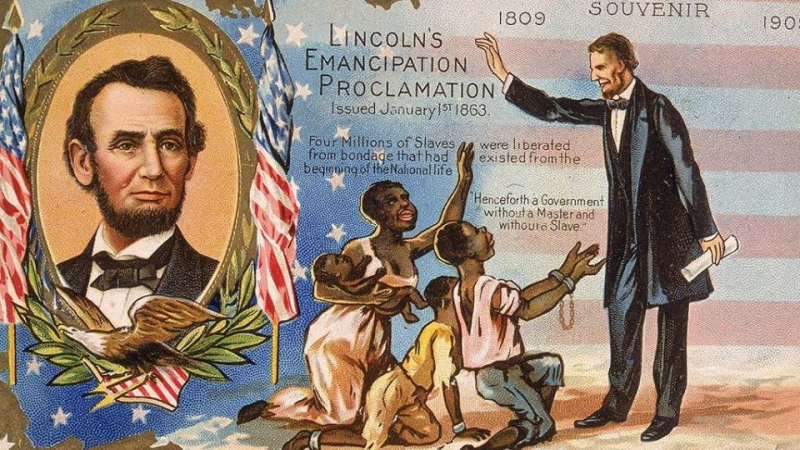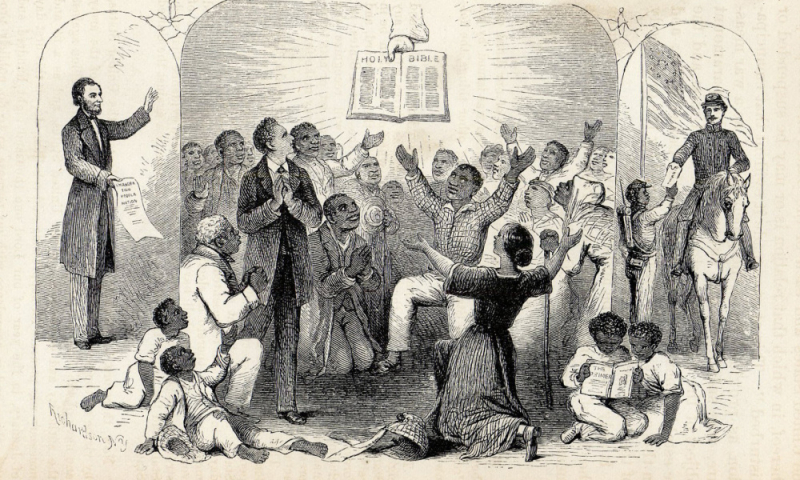Lincoln considered the Emancipation Proclamation the crowning achievement of his presidency.
As President, Lincoln built the Republican Party into a strong national organization. Further, he rallied most of the northern Democrats to the Union cause. Still, the most lasting accomplishments attributed to Abraham Lincoln are the preservation of the Union, the vindication of democracy, and the death of slavery.
On January 1, 1863, he issued the Emancipation Proclamation that declared forever free of those slaves within the Confederacy. One of the most significant achievements of the Proclamation is paving the way for the permanent abolition of slavery in the United States. The Emancipation Proclamation also turned foreign popular opinion in favor of the Union by gaining the support of anti-slavery countries and countries that had already abolished slavery. Public opinion in Britain would not tolerate support for slavery. As Henry Adams noted, "The Emancipation Proclamation has done more for us than all our former victories and all our diplomacy". In Italy, Giuseppe Garibaldi hailed Lincoln as "the heir of the aspirations of John Brown". On August 6, 1863, Garibaldi wrote to Lincoln: "Posterity will call you the great emancipator, a more enviable title than any crown could be, and greater than any merely mundane treasure". Mayor Abel Haywood, a representative for workers from Manchester, England, wrote to Lincoln saying, "We joyfully honor you for many decisive steps toward practically exemplifying your belief in the words of your great founders: 'All men are created free and equal.'"
Heralded as the savior of the Union, President Lincoln considered the Emancipation Proclamation to be the most important aspect of his legacy. “I never, in my life, felt more certain that I was doing right than I do in signing this paper,” he declared. “If my name ever goes into history it will be for this act, and my whole soul is in it."












